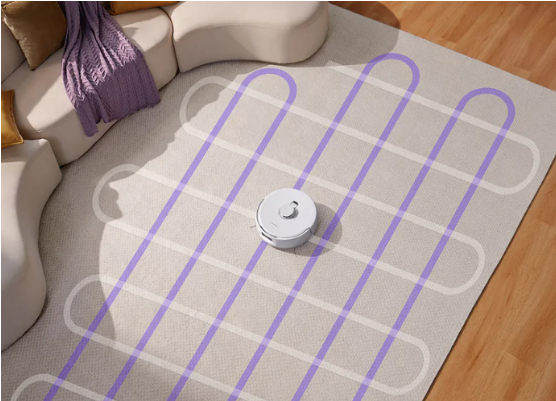How Do Energy-Efficient Vacuum Cleaners Impact Yours Electricity Bills?

In today’s world, where energy conservation and cost-saving are paramount, the choice of household appliances plays a significant role in managing electricity bills. Among these appliances, vacuum cleaners are essential for maintaining a clean living environment.
However, not all vacuum cleaners are created equal, especially when it comes to energy efficiency. This article delves into how energy-efficient vacuum cleaners can impact your electricity bills, highlighting the benefits and considerations of opting for such appliances.
Understanding Energy Efficiency in Vacuum Cleaners
Energy efficiency refers to how effectively an appliance converts energy into useful work while minimizing energy waste. For vacuum cleaners, this means achieving optimal suction power and cleaning performance without excessive energy consumption. Energy-efficient models are designed to maximize cleaning efficiency using less electricity, thereby reducing the overall energy demand.
Lower Electricity Consumption
One of the most direct ways energy-efficient vacuum cleaners impact your electricity bills is through reduced power usage. Traditional vacuum cleaners can consume a significant amount of electricity, especially when used frequently.
In contrast, energy-efficient models are engineered with advanced motors and technologies that deliver powerful suction with lower energy input. This efficiency translates to less electricity consumed per cleaning session, directly lowering your monthly energy expenses.
Advanced Technologies Enhancing Efficiency
Modern energy-efficient vacuum cleaners incorporate various technologies to enhance their performance while minimizing energy use. Features such as:
- High-Efficiency Motors: These motors provide strong suction with less power, ensuring effective cleaning without draining too much electricity.
- Smart Sensors: Some vacuum cleaners are equipped with sensors that adjust the suction power based on the surface being cleaned, optimizing energy use.
- Automatic Shut-Off: This feature turns off the vacuum cleaner when it’s not in use, preventing unnecessary energy consumption.
One notable example is the robot vacuum, which leverages smart technology to navigate and clean efficiently. These autonomous devices can schedule cleaning sessions during off-peak energy hours, further reducing electricity costs.
Long-Term Cost Savings
While energy-efficient vacuum cleaners may have a higher upfront cost compared to their less efficient counterparts, the long-term savings on electricity bills can offset the initial investment. By consuming less power, these vacuum cleaners contribute to lower monthly energy expenses. Over time, the cumulative savings can be substantial, making energy-efficient models a financially prudent choice.
Environmental Benefits
Beyond the immediate financial savings, energy-efficient vacuum cleaners also offer environmental benefits. Reduced electricity consumption means a lower carbon footprint, contributing to environmental conservation efforts. By choosing energy-efficient appliances, consumers can play a part in mitigating climate change and promoting sustainable living practices.
Durability and Maintenance
Energy-efficient vacuum cleaners are often built with high-quality materials and advanced engineering, enhancing their durability and lifespan. A longer-lasting appliance reduces the need for frequent replacements, which not only saves money but also decreases waste. Additionally, these models typically require less maintenance, as their efficient design minimizes wear and tear on components.
Rebates and Incentives
In some regions, governments and utility companies offer rebates and incentives for purchasing energy-efficient appliances. These programs aim to encourage consumers to adopt greener technologies by providing financial incentives. Investing in an energy-efficient vacuum cleaner might qualify you for such benefits, further reducing the overall cost and enhancing the financial advantages of your purchase.
Choosing the Right Energy-Efficient Vacuum Cleaner
When selecting an energy-efficient vacuum cleaner, consider the following factors:
- Energy Star Certification: Look for models that are Energy Star certified, as this indicates compliance with energy efficiency standards.
- Suction Power vs. Energy Consumption: Balance the need for strong suction with the desire for low energy consumption. Higher suction power doesn’t always mean higher energy use if the vacuum is designed efficiently.
- User Reviews and Ratings: Research consumer feedback to gauge the real-world performance and energy efficiency of different models.
- Advanced Features: Features like smart scheduling, automatic shut-off, and adjustable suction settings can enhance energy efficiency and overall usability.
Conclusion
Energy-efficient vacuum cleaners offer a compelling combination of lower electricity consumption, cost savings, environmental benefits, and enhanced durability. By choosing an energy-efficient model, such as the advanced robot vacuum, consumers can significantly reduce their electricity bills while maintaining a clean and healthy home environment.
As technology continues to evolve, the efficiency and effectiveness of vacuum cleaners will only improve, making them an essential component of energy-conscious living.
Investing in an energy-efficient vacuum cleaner is not just a smart financial decision but also a step towards a more sustainable and eco-friendly lifestyle. By understanding the impact of these appliances on your electricity bills, you can make informed choices that benefit both your wallet and the planet.





